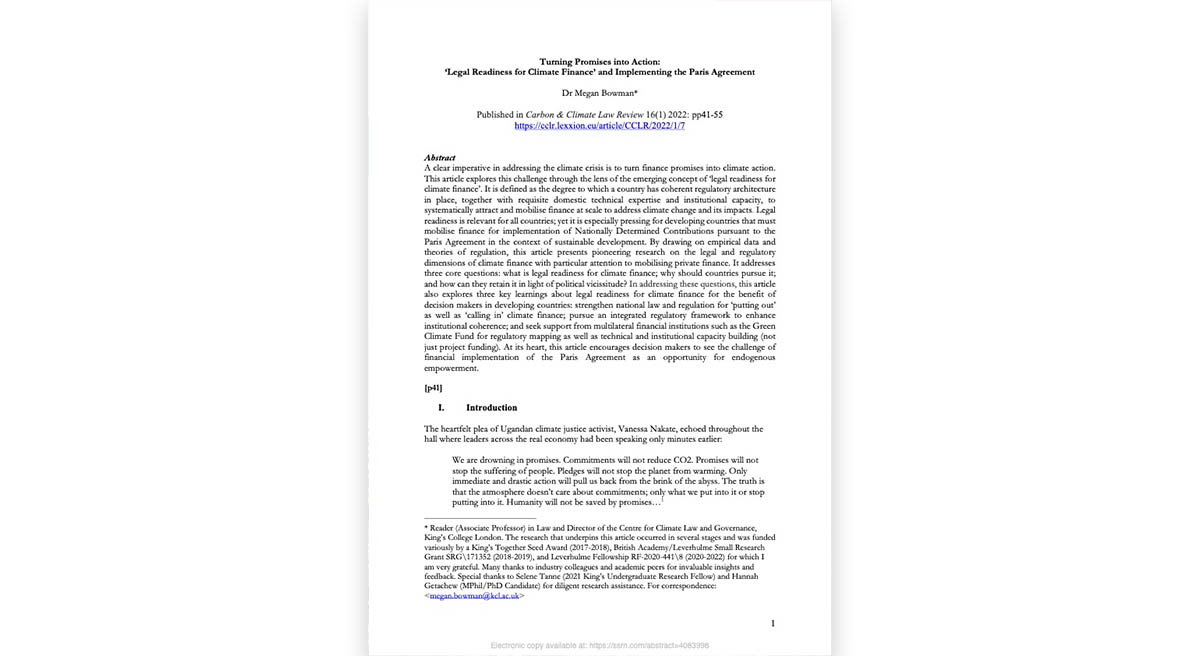Turning Promises into Action: ‘Legal Readiness for Climate Finance’ and Implementing the Paris Agreement
Abstract
A clear imperative in addressing the climate crisis is to turn finance promises into climate action. This article explores this challenge through the lens of the emerging concept of ‘legal readiness for climate finance’. It is defined as the degree to which a country has coherent regulatory architecture in place, together with requisite domestic technical expertise and institutional capacity, to systematically attract and mobilise finance at scale to address climate change and its impacts. Legal readiness is relevant for all countries; yet it is especially pressing for developing countries that must mobilise finance for implementation of Nationally Determined Contributions pursuant to the Paris Agreement in the context of sustainable development. By drawing on empirical data and theories of regulation, this article presents pioneering research on the legal and regulatory dimensions of climate finance with particular attention to mobilising private finance. It addresses three core questions: what is legal readiness for climate finance; why should countries pursue it; and how can they retain it in light of political vicissitude? In addressing these questions, this article also explores three key learnings about legal readiness for climate finance for the benefit of decision makers in developing countries: strengthen national law and regulation for ‘putting out’ as well as ‘calling in’ climate finance; pursue an integrated regulatory framework to enhance institutional coherence; and seek support from multilateral financial institutions such as the Green Climate Fund for regulatory mapping as well as technical and institutional capacity building (not just project funding). At its heart, this article encourages decision makers to see the challenge of financial implementation
